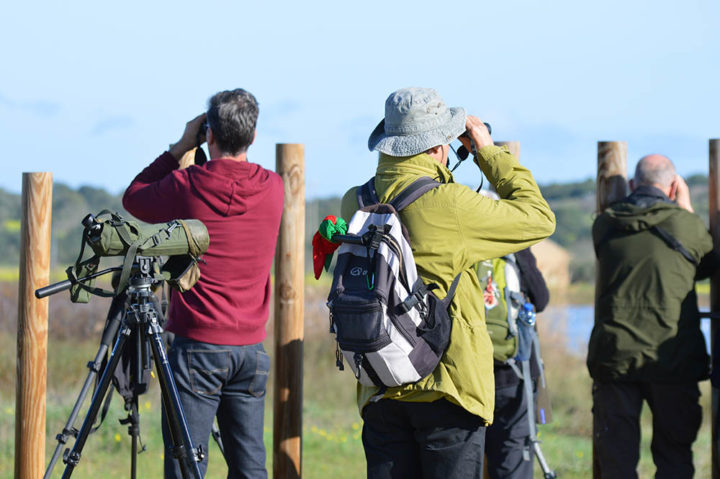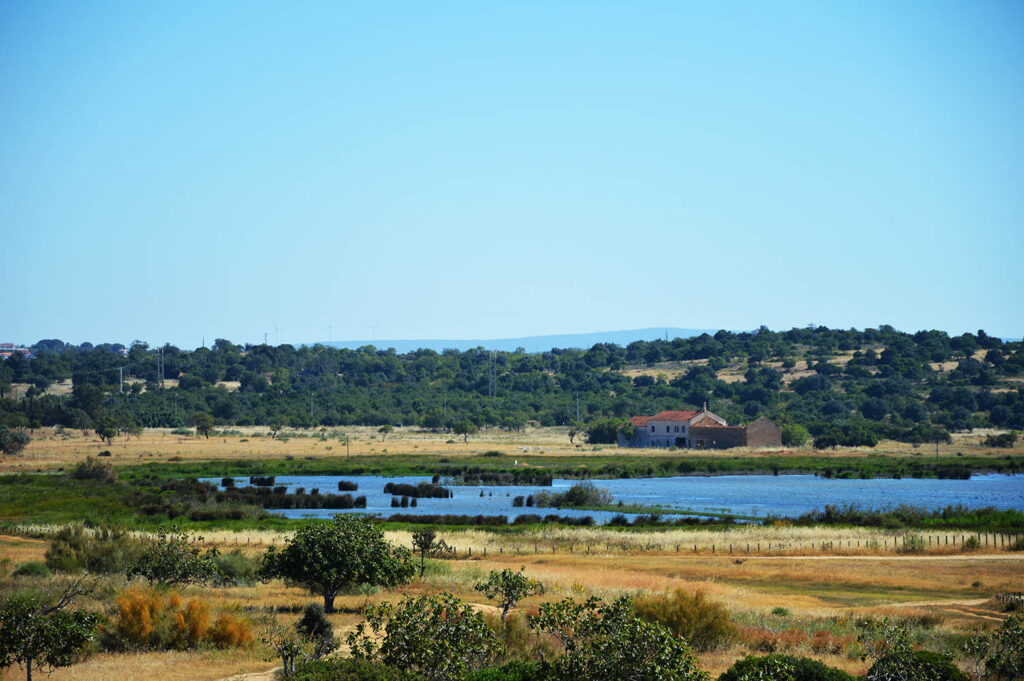The proposal for creation of the Lagoa dos Salgados Nature Reserve, located on the coast between the municipalities of Albufeira and Silves, is highlighted as one of the positive points of 2021 by the League for the Protection of Nature (LPN) and by Quercus – National Association for Nature Conservation.
According to a statement, in the style of last year's balance sheet, the LPN emphasizes that «2021 ends in a very positive way with the proposal to create the Lagoa dos Salgados Nature Reserve, which could become the first terrestrial protected area to be created in Portugal in over 20 years».
“This is great news because our country and the world need more areas dedicated to nature conservation. But as important as this aim is to ensure that the management of these areas becomes more effective».
LPN hopes that, in 2022, «the intention to give Lagoa dos Salgados the status of Natural Reserve will be fulfilled, as well as the other areas that aim to protect the common good on land and at sea, giving them not only a new title, but also the means to exercise its due protection».
Also according to Quercus' balance sheet for the year 2021, the decision to create a new protected area in the Algarve, "unfortunately the first to be created in the space of 21 years", is "a positive sign".
«Lagoa dos Salgados and the Armação de Pêra salt marsh unite an exceptional set of natural values, with particular emphasis on aquatic birds, having become one of the most visited birdwatching spots in the country and today assuming a strategic role in the region. landscape, tourist and ecological point of view of the region».
This is, for Quercus, "the corollary of a struggle and a determined commitment to the objective of its protection and safeguard which, we hope, will serve as an example for other similar areas in the near future".
At a time when Covid-19 remains a top concern, Quercus recalls that "the outbreak of pandemics is associated with the loss of biodiversity, the destruction of wild habitats and climate change."
«These are some of the reasons why the Government and all municipalities, as well as companies, have more than ever the responsibility to strengthen strategies and investments towards the promotion of a true national strategy for biodiversity and the conservation of protected areas and to protect, including the vast national ocean resources,” he explains.
On the day the Basic Climate Law was published, «which recognizes that we are currently living in a situation of “climate emergency”», Quercus reminded the Executive that «carbon neutrality must be achieved by 2040 at the latest if we are to guarantee climate security for future generations, that is, to ensure that the global temperature remains below 1,5ºC».
«The ongoing application of massive funds, within the scope of the Recovery and Resilience Plan (PRR), continues to strongly underestimate the potential of environmental and climate measures in the promotion of green jobs and a sustainable and forward-looking economic recovery that examples are the investment in intensive monocultures and irrigated crops, which generate pollution, water scarcity and landscape destruction».

In the positive facts pointed out by the two entities is also the approval of the Basic Climate Law, which «condenses guidelines for the Portuguese climate policy» and assumes «more ambitious national targets for the reduction of greenhouse gas emissions than the previous ones, admitting the anticipation of the country's carbon neutrality», stresses the LPN.
Also the fact that the United Nations aims to «see 30% of the oceans with some protection status» was pointed out as positive by the LPN, «an issue in which national efforts to achieve the goal are visible».
«The new Marine Protected Area (MPA) of the Atlantic Current and the Evlanov seamount basin off the Azores, and the expansion of the Natural Reserve of Ilhas Selvagens, created 50 years ago, which will make it the largest MPA in Europe and in the entire North Atlantic emphasize the role that the outermost regions can play in this context».
Also in the Algarve «it seeks to create the Natural Marine Park of Recife do Algarve – Pedra do Valado, the first to originate in a participatory process, initiated by LPN in 2014 and which has recently been reborn».
Portugal thus assumes “a top spot” in ocean conservation, and the recent awarding of the Pessoa Award 2021 to Tiago Pitta e Cunha “has precisely reinforced this national mission”.
In the «bad news, and what remains to be resolved in 2022», according to LPN, are «the strategic and structuring plans that we saw being presented and that left empty the hope that the defense of the environment would decisively weigh in the decisions that will shape the coming years'.
«The PRR, despite including positive aspects, presented investments with a negative environmental impact, such as the investment in the Crato Multiple Purpose Hydraulic Use Project (Pisão dam), and left its full use to correct problems empty. environmental conditions'.
Another negative point relates to "the advance of coastal exploration, which has continued to allow the destruction of heritage, especially in the Natural Park of Southwest Alentejo and Costa Vicentina, where even habitats protected by European legislation have disappeared under the sea of greenhouses" .
«Intensive agriculture and the construction of hotel developments in areas of high natural and scenic value are progressing apace throughout the country, with particular emphasis on irrigated crops in Alentejo and Algarve and on plans for the coast between Tróia and Melides ».
The creation of the Lagoa dos Salgados Nature Reserve had already been identified as one of the six most positive facts on the environment in 2021, according to the balance of the year made by ZERO – Sustainable Terrestrial System Association.



















Comments